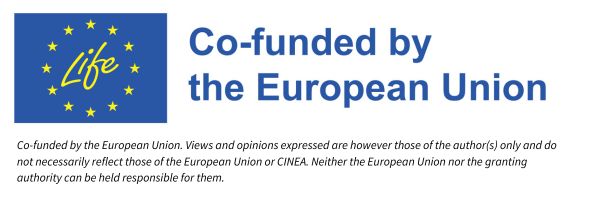RePower the Regions: Ambitious and inclusive clean energy plans for repowering the just transition regions
The participation and leadership of carbon-intensive regions in transitioning to clean energy solutions are prerequisites for achieving EU climate neutrality by 2050. Building on this premise, RePower the Regions aims to ensure that the regions’ clean energy plans are aligned with EU 2030 climate goals and have strong support locally, and to provide practical guidelines and roadmaps on how to repower the regions.
The project will build on the experience we have gained within the LIFE RegENERate project to further enhance the involvement of citizens in decision-making within the just transition process and to facilitate the development of citizen-led mechanisms for monitoring and involvement in decision-making in 16 just transition regions.
Project info
Project number and name: 101120862 — LIFE22-CET-RePower the Regions
Start date: 01/10/2023
End date: 30/06/2026
Source of funding: LIFE Programme
Overall project value: EUR 1,498,671.00
The project will be implemented in just transition regions in nine countries:
Bulgaria, Czech Republic, Estonia, Hungary, Latvia, Poland, Romania, Slovakia and Ukraine
The project will aim to achieve the following specific objectives:
- Support to regional and local authorities and their capacities to deliver, implement and monitor ambitious short- and medium-term clean energy plans and strategies for 2030 are increased in 9 countries through the planned capacity-building activities and provision of expertise.
- Ambitious decarbonisation and energy efficiency solutions and planning are developed, and clean energy community-led projects are enabled in 9 countries through our awareness-raising and capacity-building activities, participatory consultation processes and provision of expertise.
- Approaches that facilitate the integration of clean energy, and thus reduce fossil fuel consumption by 2030, are developed in 9 countries through our research-based and capacity-building-focused activities, advocacy and actions aimed at increasing investment opportunities.
- The participation and engagement of all relevant public and private stakeholders is accelerated and increased in 9 countries through our awareness-raising and capacity-building activities, as well as participatory consultation processes.
DELIVERABLES
D2.1 Capacity-building manual
Navigating the just transition: A manual for effective capacity-building events, February 2024
D2.2 Decarbonisation briefings for at least 7 countries with summary in English
RePowering the regions: A comparative analysis of decarbonisation strategies in nine central and eastern European countries, December 2024
Bulgaria: Study of sustainable solutions of the Tsarkva district in Pernik, January 2025
Czech Republic: Technical and economic decarbonization study of district heating in Jiříkov, November 2024
Estonia: Economic, geographical and social feasibility study of the introduction of community energy (renewable energy cooperatives) in Ida-Viru County by 2035, December 2024
Hungary: Mapping community-led energy transition solutions (electricity, heat) in Miskolc (Hungary) from energy and social perspective, December 2024
Latvia: Daugavpils city cycling infrastructure, February 2025
Public transport accessibility (transport poverty reduction) in the Rezekne region, May 2025
Romania: Solutions to combat energy poverty in Petroșani Municipality, December 2024
Poland: Assessment of the decarbonisation potential of the building sector at the local level in the Kleczew commune, December 2024
Slovakia: Development of the district heating system in the town of Partizánske, Social research – support of decarbonisation in the city of Partizánske, June 2024
Ukraine: Survey of the population on the decarbonisation of heating in the Novovolynsk, Lytovez and Poromivka communities of the Volyn region, November 2024
D3.1 Database of project ideas
Database: Exploring just transition projects, September 2024
D3.2 Decarbonisation leaflets for 9 countries
Bulgarian- Preparing municipalities for the future: A guide to decarbonisation solutions, March 2025
Czech – Preparing municipalities for the future: A guide to decarbonisation solutions, March 2025
English – Preparing municipalities for the future: A guide to decarbonisation solutions, March 2025
Estonian- Preparing municipalities for the future: A guide to decarbonisation solutions, March 2025
Hungarian- Preparing municipalities for the future: A guide to decarbonisation solutions, March 2025
Latvian- Preparing municipalities for the future: A guide to decarbonisation solutions, March 2025
Romanian- Preparing municipalities for the future: A guide to decarbonisation solutions, March 2025
Polish – Preparing municipalities for the future: A guide to decarbonisation solutions, March 2025
Slovak- Preparing municipalities for the future: A guide to decarbonisation solutions, March 2025
D3.3 Expert visits
D4.1 Summary report from citizen forums
D4.2 Working groups final recommendations
RePowering the regions: How working groups can support local decarbonisation efforts, December 2025
D4.3 Monitoring and implementation framework
D5.1 4 curriculum programmes for targeted universities
D6.1 Briefing paper on JT regions needs targeting EBRD and EIB
Supporting the just transition through dedicated technical assistance, June 2024
D6.2 Leaflets with pipeline project lists and descriptions
Bulgaria: Местни решения засправедлив енергиенпреход – Перник и Бобов дол, July 2025
Czech Republic: Průkopníci komunitníenergetiky v Česku, July 2025
Estonia: Puhtad jõed ja kaugküttesüsteemid Ida-Virumaale: Mida on selle saavutamiseks vaja?, July 2025
Hungary: Energia, közösségben: Fejlesztések Miskolc tiszta energiallátásáért
Latvia: Gatavi enerģētikas pārejai – transformējoši Latgalespašvaldību projekti, kamnepieciešams atbalsts, July 2025
Poland: Sprawiedliwa transformacja w toku: Inspirujące projekty z szansą na realizację, July 2025
Romania: Exemple de proiecte-far pentru o tranziție justă a regiunilorcarbonifere din România, July 2025
Slovakia: Spoľahlivé teplo pre moderné mestá, November 2025
Ukraine: Пріоритетнітрансформаційні проєктивугільних громадВолинської області, July 2025
D6.3 Report from final decision-maker roundtable
PUBLICATIONS
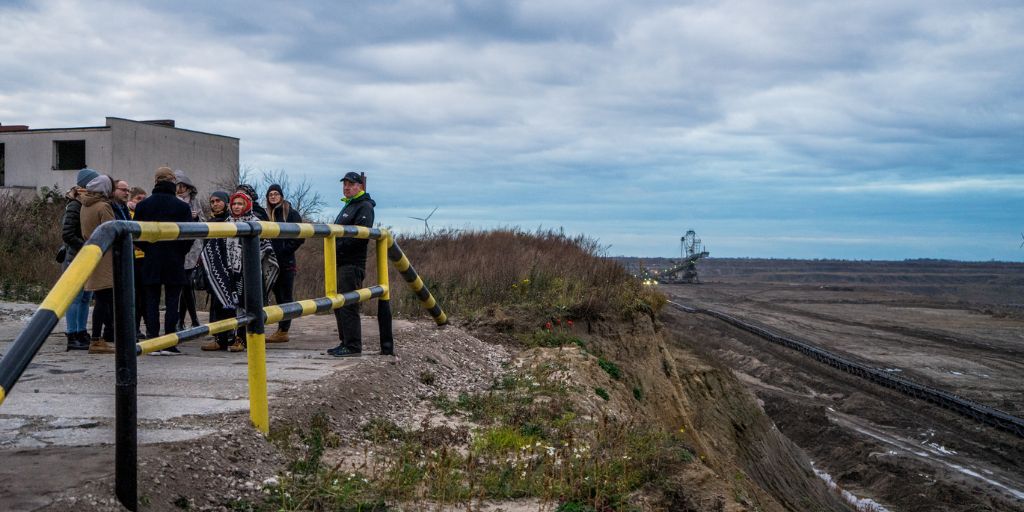
RePowering the regions: How working groups can support local decarbonisation efforts
Publication | 18 December, 2025This briefing analyses the work of four decarbonisation working groups established in just transition regions in Latvia, Slovakia, Estonia and Hungary.
Read more
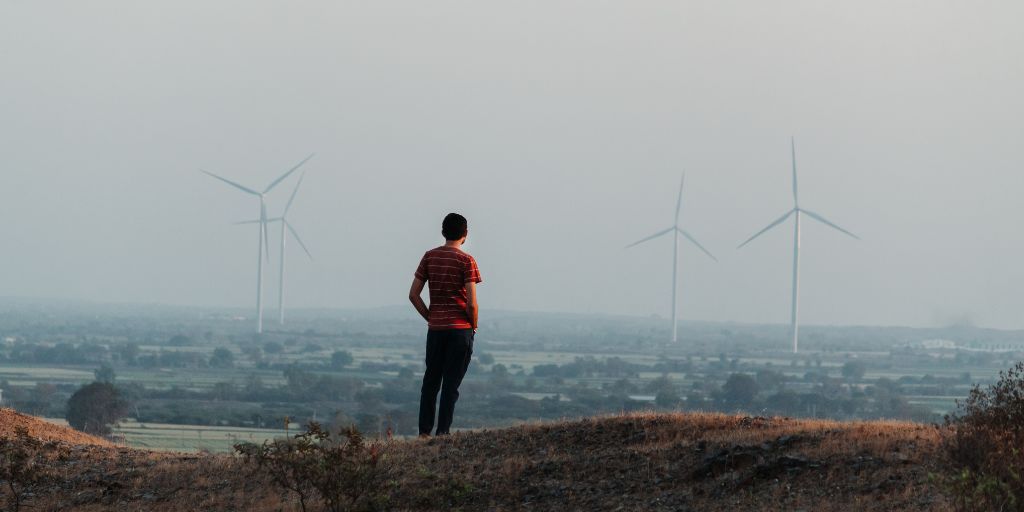
Preparing municipalities for the future: A guide to decarbonisation solutions
Publication | 18 March, 2025This guide provides an overview of possible funding streams and necessary steps to secure decarbonisation solutions for municipalities.
Read more
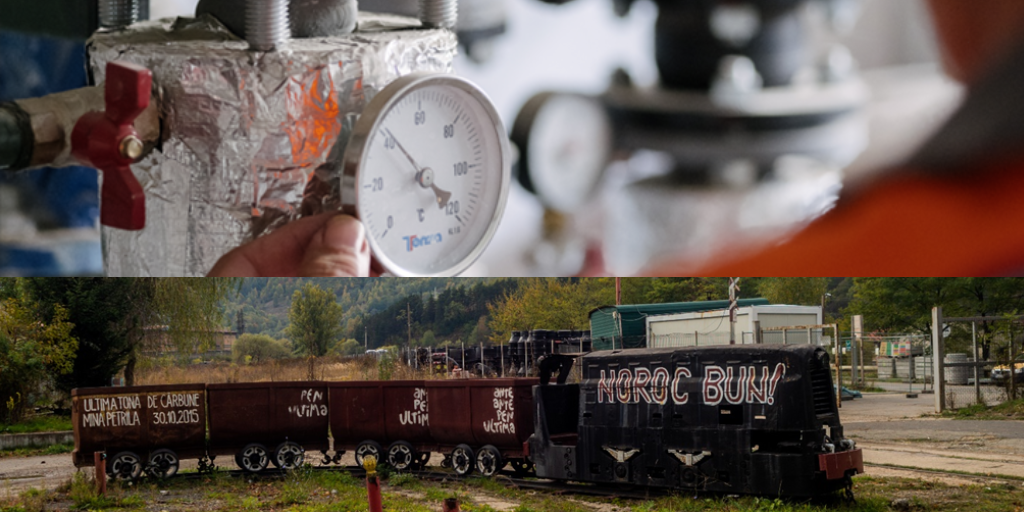
RePowering the regions: A comparative analysis of decarbonisation strategies in nine central and eastern European countries
Publication | 18 December, 2024This comparative analysis of decarbonisation strategies in nine central and eastern European countries aims to enhance knowledge of decarbonisation pathways.
Read more
DATABASE: EXPLORING JUST TRANSITION PROJECTS
As the planning phase of the just transition process draws to a close, there’s growing interest in implementing transformative projects in Europe’s transition regions. While some countries have been slow to set up the Just Transition Fund, our diverse project database shows that, even in these regions, local stakeholders are brimming with ideas and ready to act the moment funding becomes available. In fact, many stakeholders have already found alternative or additional sources of funding, highlighting their determination to press ahead with their plans even without the Just Transition Fund.
Our database showcases the wide range of projects that local stakeholders are planning, implementing or have already completed. The projects are highly diverse, including initiatives in energy efficiency, upskilling, green mobility, green energy, research and innovation, economic diversification, land reclamation, energy poverty reduction, and capacity building.
It also serves as a valuable tool for understanding the priorities of just transition regions as they work to drive change at the local level. Some of these projects might inspire other regions to adopt similar solutions. In addition, it offers decision makers important insights into how support for these regions can be improved in the future. At the same time, technical assistance providers can gain a clearer understanding of the needs of just transition regions and the types of projects that engage local stakeholders, allowing them to better tailor their services.
The database will continue to expand as the just transition progresses during the implementation phase, with new transformative projects being developed and implemented across the regions.
BLOG POSTS

Encouraging local input: Łódzkie voivodeship takes a more inclusive approach to just transition planning
Blog entry | 13 May, 2025Non-governmental organisations in Poland’s post-coal regions face several unique challenges. The specific socio-economic conditions prevalent in these areas often impede the growth of a fully professionalised and well-organised environment that allows civil society to thrive. Yet, despite these challenges, signs of progressive change are emerging.
Read more

Pedalling forward in Daugavpils: Towards a cyclist-friendly city
Blog entry | 14 April, 2025On the afternoon of 28 March, residents, municipal representatives, and locally elected officials joined a panel of experts in the Latvian city of Daugavpils to discuss the future of cycling in the city. The aim of the event was to identify existing challenges as well as practical solutions that might encourage more residents to choose cycling as a regular mode of transport.
Read more
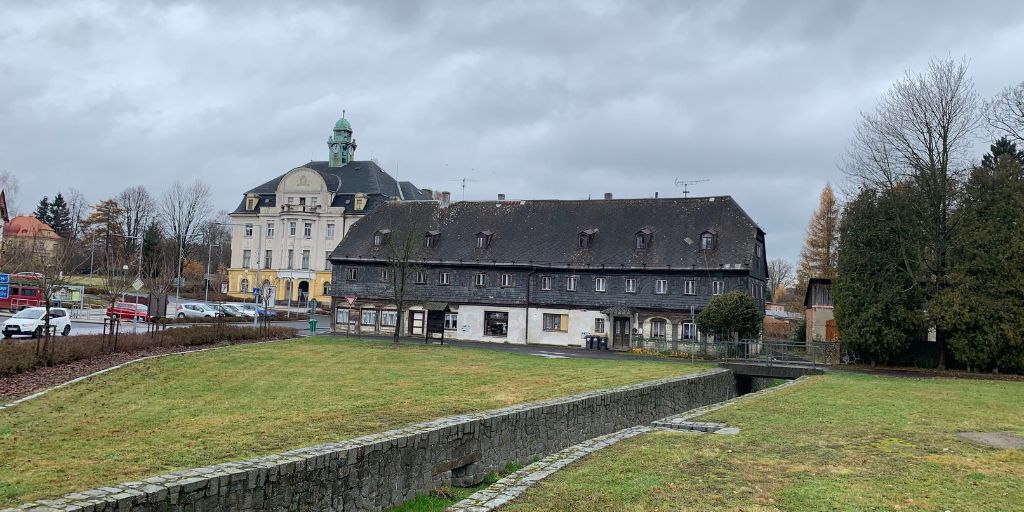
Jiříkov’s path to a clean energy future
Blog entry | 20 March, 2025The profound transformation of Europe’s energy sector in response to climate change and the goal of reducing greenhouse gas emissions is having a particularly significant impact on regions that have long relied on fossil fuels, especially coal mining.
Read more
NATIONAL PUBLICATIONS
Study of sustainable solutions of the Tsarkva district in Pernik
Publication date: 25 January 2025
In order to have economic and environmental benefits for switching to heat pump heating, the main condition is that the buildings are thermally insulated according to the current standards. This is most true for climatic zones with long winters (an average of 195 days), as is the case with the city of Pernik. Finally, recommendations are made to the Municipality of Pernik for the future development of alternatives for sustainable energy supply to the district of Pernik.
Technical and economic decarbonization study of district heating in Jiříkov
Publication date: 26 November 2024
The town of Jiříkov in the Ústí nad Labem Region, in cooperation with the Centre for Transport and Energy, has commissioned an expert study on the possibilities of switching the heating of municipal buildings to emission-free energy sources. The study, prepared by experts from the University Centre for Energy Efficient Buildings (UCEEB) of the Czech Technical University, evaluates in detail the advantages and disadvantages of available technologies and the possibilities of using local renewable energy sources and presents several variants of the central heat supply system of selected urban buildings with the aim of reducing greenhouse gas emissions and increasing the energy efficiency of urban buildings.
From ruin to renewal: Restoring Kurtna’s lakes
Publication date: 20 November 2024
This video from Estonian Green Movement showcases how the Just Transition Fund is being used to restore the natural values of this unique lake ecosystem. It also underscores the vital role of the state in directing more funding towards biodiversity conservation and restoration. A clean and biodiverse natural environment is essential for a just future!
Assessment of the decarbonisation potential of the building sector at the local level in the Kleczew commune
Publication date: 20 December 2024
The energy transition in the Kleczew municipality is a key challenge in the context of achieving climate neutrality in the Eastern Wielkopolska region. No less important for the region is the improvement of air quality and living conditions of residents. The report by Cezary Czemplik, prepared for the Polish Green Network and the CEE Bankwatch Network, focuses on the issue of decarbonization of buildings in the municipality. It provides a comprehensive analysis of the current situation, identifies key barriers and formulates recommendations and a roadmap for the sustainable transformation of the sector.
Solutions to combat energy poverty in Petroșani Municipality
Publication date: 18 December 2024
The study provides an overview of the phenomenon of energy poverty in Petroșani, highlighting the challenges faced by the community and proposing concrete solutions based on energy efficiency measures and the use of renewable resources.
Development of the district heating system in the town of Partizánske
Publication date: 28 June 2024
The study is divided into three parts, which form separate units with mutual connection.
The first part maps the current state of heat management in the town of Partizánske as well as the potential for the use of renewable energy sources in the wider area of the city.
The second part assesses the further development of the district heating system in the town of Partizánske.
Social research – support of decarbonisation in the city of Partizánske
Publication date: 28 June 2024
The region of Upper Nitra, to which the town of Partizánske and its surroundings belong, is in a specific situation from the point of view of decarbonisation and just transformation of Slovakia. The transformation of the region, which is mainly caused by the end of lignite mining and its energy use in the form of combustion in the Nováky power plant, has an impact not only on employment but also on the overall socio-economic-demographic development of the entire region.
This report provides an overview of the attitudes and perceptions of the upcoming transformation of the heating industry by individual actors in the city of Partizánske. These actors are not only representatives of local government (officials, political leadership, deputies), but also representatives of municipal companies (Technical Services of the City, City Property Management), civil society and citizens of the city.
Survey of the population on the decarbonisation of heating in the Novovolynsk, Lytovez and Poromivka communities of the Volyn region
Publication date: 13 November 2024
Coal communities of the Volyn region are already going through a process of just transformation. Given the proximity of these communities to the Polish border, the least security risks, and special conditions for investment, these coal communities can become a platform for decarbonization projects that can become a source of inspiration for more eastern communities in the future. Given the energy challenges Ukraine is facing, it is important to implement projects that do not rely on fossil fuels but are aimed at the transition to clean and sustainable energy sources, in particular regarding the transition of heating to low-carbon sources.
For the successful implementation of projects related to the decarbonization of heating, it is important to have a clear and accurate picture of energy consumption by different population groups, the constraints on the way to the decarbonisation of heating, and the prerequisites that could help in the implementation of projects.
MORE MATERIALS
